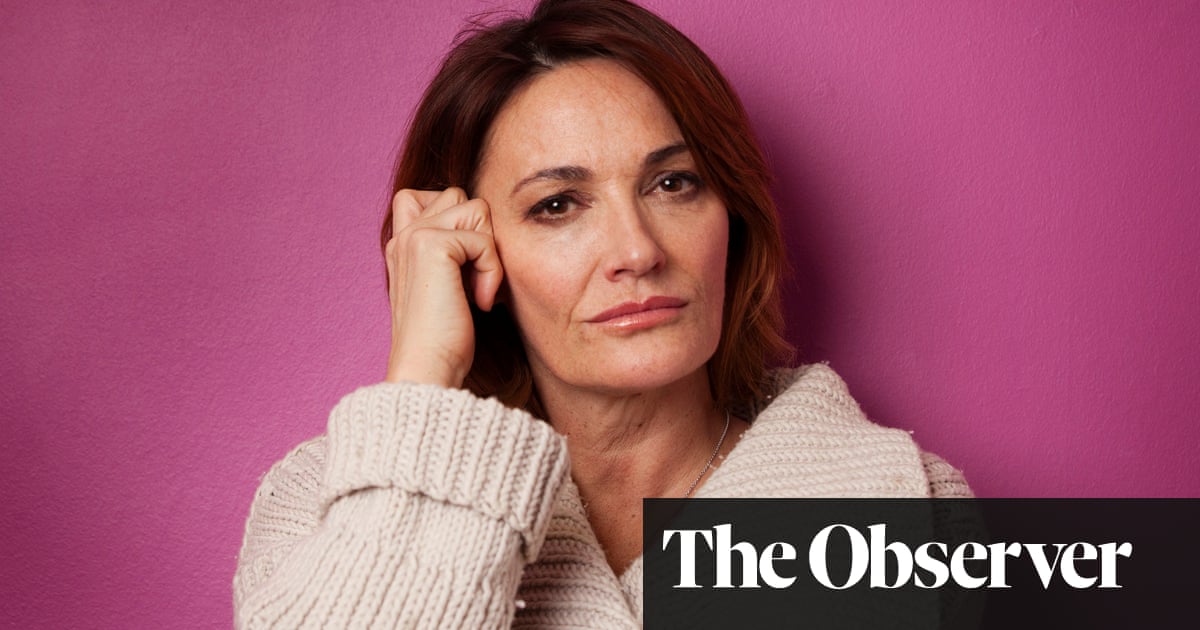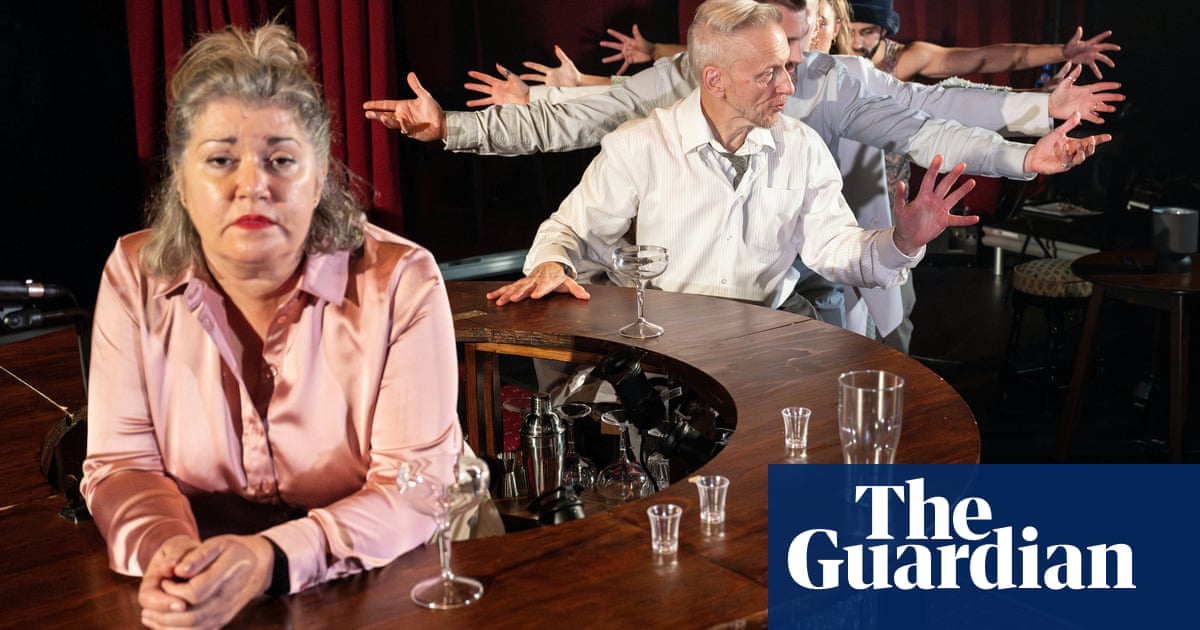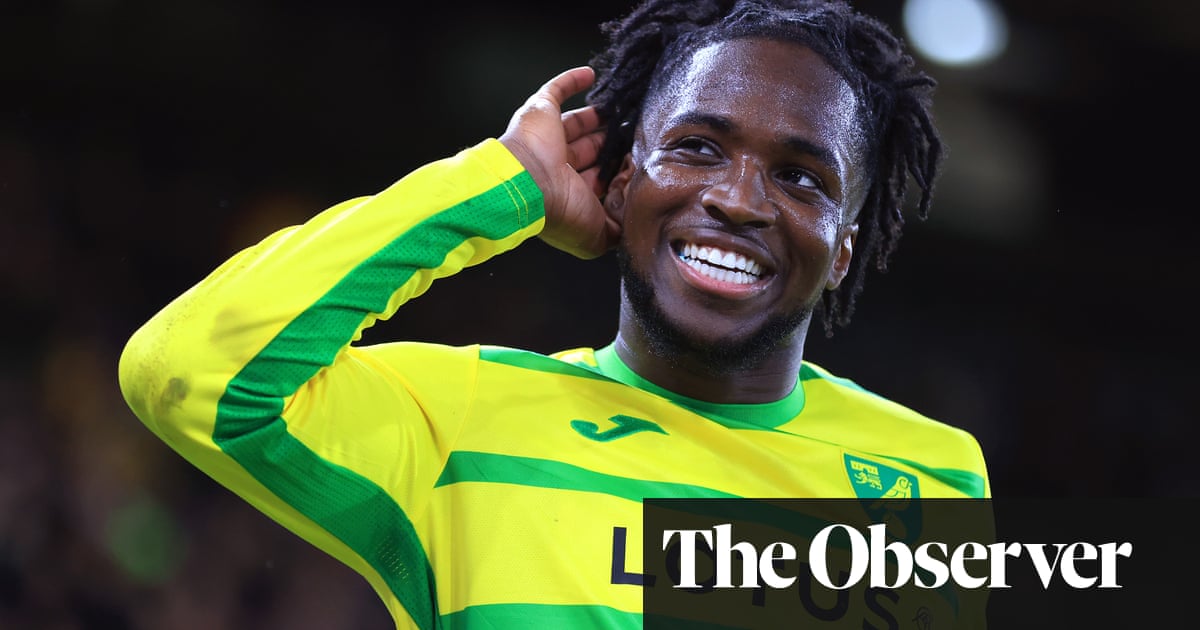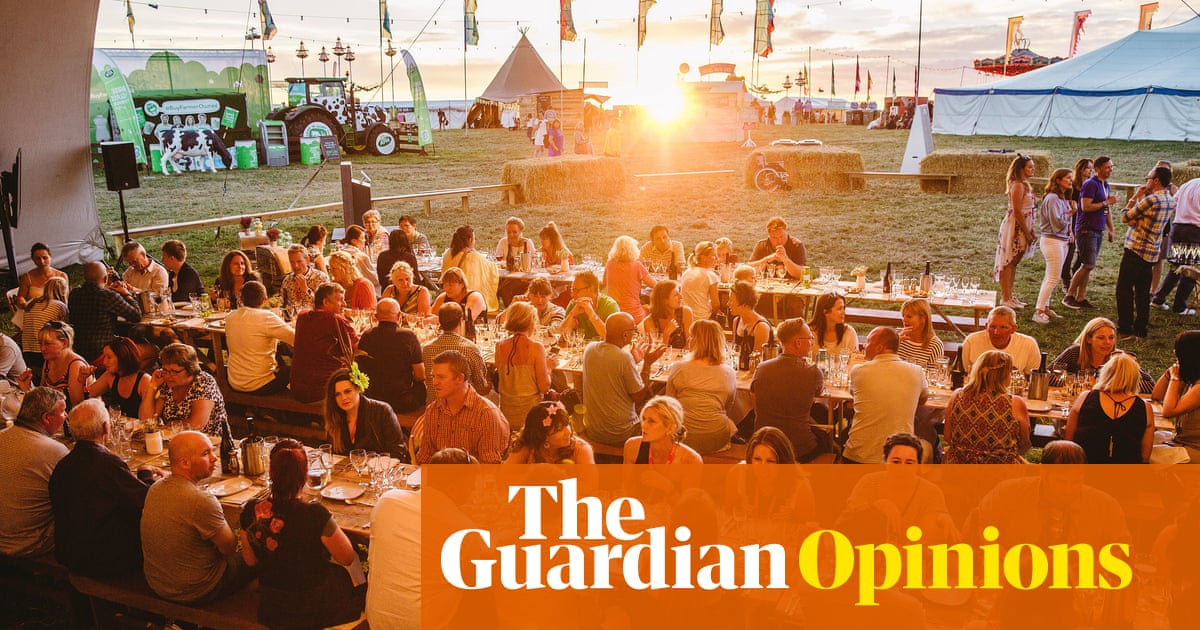
t hasn’t really sunk in yet,” says Mo Gilligan from his production office in Hackney. “I’m slowly realising that I’ve just won one of the biggest awards in British TV.” A couple of years ago, Gilligan was a relatively obscure London standup with a few viral YouTube videos to his name and a part-time job at the Levi’s store in Covent Garden in case the comedy career fell through. Now, as the exuberant host of Channel 4’s The Lateish Show, he’s just bagged a Bafta for best entertainment performance, pipping chat-show veterans Frankie Boyle, Lee Mack and Graham Norton to the prize.
Gilligan, now 32, has been doing standup since he was 19, but it was a motormouth sketch about different types of grime MCs, uploaded to YouTube in December 2016, that brought him to wider attention. Subsequent skits were shared by the likes of Drake and Ian Wright, and a year later Channel 4 asked the charismatic south Londoner to co-host The Big Narstie Show as well as his own late-night talk show in the coveted Friday 10pm slot.
The Lateish Show debuted in July 2019 and has been recommissioned for a second series in 2021, but Gilligan hasn’t lost touch with his standup roots. His first comedy special, Momentum, launched on Netflix last September and the 32-year-old was about to embark on a US tour when Covid-19 hit. During lockdown, he hosted All Star Happy Hour for Channel 4, based on his Instagram Live quiz show Quarantine Games, and has appeared on Celebrity Gogglebox. Gilligan lives in east London, where he spent the weekend after his Bafta win celebrating with friends and family by cooking jerk chicken and macaroni cheese and watching his beloved Arsenal lift the FA Cup.
How was 2020 shaping up for you before the pandemic hit?
I should have been doing a world tour. Just as lockdown was starting, I was finishing my work-in-progress shows and we were ready to get our visas at the American embassy. And then the world stopped. In early lockdown, I found a way to relax. Last year was crazy, so it was good for me to stop for a minute and be, like, there are more important things going on.
You didn’t stop for long though…
Yeah, I focused on building up my YouTube channel, which grew from around 20,000 subscribers to more than 100,000 [during lockdown]. I started using proper cameras for my sketches rather than just doing them on my phone. I did a thing on Instagram Live called Quarantine Games, which was turned into a TV show [All Star Happy Hour, on Channel 4]. So it went from being a really quiet moment to full-on working, though I’m doing it all from my house. It didn’t feel that alien to me, because at times like this you use what’s around you to make things work.
Do you think comedians who’ve grown up on YouTube have adapted better in lockdown?
Pushing your socials as a comic was already the norm. When I was starting out in comedy clubs, I’d always say at the end of my show, catch me on Twitter or Facebook. Social media has evolved since then. Instagram was a place where you’d upload pictures; now you have video content. And YouTube isn’t just about uploading videos; now you’ve got people who have channels and can make an income.
Did you find new ways of doing online comedy during lockdown?
Green-screen has become a thing [video technique for splicing in backgrounds]. I bought one a year ago but never used it until lockdown happened. It’s one of the hardest things to do, but when you get it right, you feel so rewarded. One video I did that went viral was a Match of the Day spoof of a post-game interview. I had to light it properly and learn how to use [editing software] Final Cut Pro. It took me three days to edit, and I was nervous putting it out, like: “This is either going to be really good or really bad.” But then Gary Lineker and loads of footballers were sharing it within minutes.
You’ve also used green-screen to do commentaries on Homes Under the Hammer.
Yeah, I call it Homes Under the Hammer Time. I actually do watch that programme – I’m genuinely quite intrigued about property. I film myself watching it for an hour and then I cut it down to a half-an-hour segment. A lot of my audience are like: “I don’t even watch this programme, but watching you watch it is quite funny, and I’m learning about property.” That’s really cool.
Do you see comedy as a public service in times like these?
Yeah, because with all the depressing things going on in the world, it’s given people some escapism. A lot of us comics do feel a bit like key workers at times. We know how we can cheer everyone up, and I definitely want to play my part in this somehow, even if it’s just putting out one-minute sketches. Whether you’re a big-time comic or up-and-coming, this is your time to use your platform to spread joy.
What do you miss most about live comedy?
It’s the whole ethos of people coming together and having a drink and sitting with their mates, and you might get a heckle, and you’ve got a hen party in the room as well… It’s not just talking to the audience, but seeing their faces and being in the same room.
Have you taken a big financial hit? Does YouTube compensate for missed gigs?
I was meant to do a world tour, so it definitely has had an impact. YouTube is great in terms of creating more content and getting more subscribers, but I haven’t really found the benefits of monetising it yet. But I’m quite lucky, because I get to do bits of TV and stuff, whereas some of my friends who are comics don’t.
In your Bafta acceptance speech, you said that winning “gives hope to so many people who sound like me, look like me and are from the same background as me”…
It’s really important to use my platform to spread that message, because within TV, the landscape has to change – and that extends to the people who make TV and the people in control. It’s not just black presenters, we also need more [black] execs and commissioners. That’s when things will really start to change.
On a personal level, have you found lockdown difficult?
I started cycling again, so that’s one thing I’ve really enjoyed. Weirdly enough, going out in public has been quite fun. I went out after I won a Bafta and normally around big crowds I get social anxiety, but putting on a face mask, sunglasses and a hat was the best thing that’s happened. It’s not like I’m David Beckham or anything, but people often ask for selfies, so to go out and not be recognised feels quite nice.












